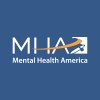Mental Health America was established in 1909, and is the leading national nonprofit dedicated to the promotion of mental health, well-being, and illness prevention in the United States. Mental Health America works to advance our mission through education, direct services, research, policy, and advocacy, and has become a national standard bearer in public mental health advocacy and community-based solutions. Our work is informed, designed, and led by the lived experience of those most affected, which powers our relentless pursuit of the mental health and well-being of all.
MHA has long been a leader in digital mental health supports. We recognize that in order to move the needle on meeting global mental health needs, we have to meet individuals with mental health supports where and how they are looking to receive them.
Three ways MHA is promoting mental health in a digital space:
MHA’s National Screening and Prevention Program
In 2014, MHA launched the online mental health screening program (MHA Screening), which is a collection of free, confidential, anonymous, and scientifically validated screening tools to help individuals understand and learn more about their mental health in a digital space. These tools include the Patient Health Questionnaire 9-item tool (PHQ-9) for depression, the Generalized Anxiety Disorder 7-item tool (GAD-7) for anxiety, as well as screening tools for other mental health conditions including alcohol or substance use, psychosis, bipolar disorder, and posttraumatic stress disorder.
The mission of MHA Screening is to ensure every person who needs mental health support can take a screen and explore what mental health challenges they are facing. When people first start experiencing mental health problems, many don’t have access to mental health care, so they seek help and resources online.
Since MHA launched the program 10 years ago, nearly 30 million screens have been taken through our website. While initially the program served primarily domestic users within the U.S., it has continued to be adopted globally. Now, in 2024, over half of users on MHA Screening are international.
In addition to our screening tools, MHA’s Screening website features hundreds of informational articles on mental health. Most online mental health information is targeted toward people who already know what they are looking for. They use language understood only by mental health professionals and their long-standing clients. They also assume that most people are ready, willing, and able to seek professional treatment. However, MHA’s research has shown that many individuals in their first stages of experiencing a mental health condition are not ready or able to access professional treatment. We help our readers understand their options, and we trust them to make their own mental health decisions. We write about mental health the way we talk about mental health—using clear, conversational language that you don’t need a degree in psychology to understand. Through the content offered on our website, users can learn ways to connect online with others to reduce shame and fear, and the treatments that they need to create stability and whole health.
MHA has also developed interactive digital supports powered by crowd-sourcing, artificial intelligence, and emerging technology. These resources are driven by our research on the kinds of supports people living with mental health conditions are telling us they want, and the help-seeking behaviors they demonstrate on our website. These are researched as micro-interventions to address the needs of someone who wants help but doesn’t have access to immediate support.
Our interactive digital supports include:
- Overcoming Negative Thoughts: This tool helps users reframe negative thoughts into more hopeful statements. Individuals can also view and interact with thoughts shared by other users to help guide them.
- Changing thoughts with an AI assistant: This tool uses artificial intelligence to help users reframe patterns of negative thinking into thoughts that are more positive, realistic, or helpful.
- Answer, Share, Explore tools for psychosis and addiction: Both answer, share, explore tools allow users to share their experiences with psychosis and addiction, share their answers anonymously, and explore experiences reported by other users to feel less alone. The addiction tool also helps users explore the “benefits” and challenges of addiction and figure out their next steps.
MHA’s Online Public Education and Awareness Campaigns
MHA also creates tools and resources year-round for people to access information that supports their mental health and well-being, with an understanding that our mental health changes and evolves over our lifetimes. These resources include posters, social media graphics, worksheets, videos, printable handouts, and educational tools for individuals and organizations to learn about mental health, spread awareness, and advocate to improve mental health for themselves, their friends and families, and their communities. Each of the toolkits released by MHA are also available in Spanish.
MHA’s public education campaigns include:
- May is Mental Health Month: Every May, MHA releases a toolkit to recognize the Mental Health Awareness Month in the U.S. In 2024, the theme of this toolkit was “Where to Start,” including resources on taking care of your mental health in a changing world, with topics such as managing the mental health impact of social media and news, combatting loneliness and isolation, and how to support family members or friends who are struggling with their mental health.
- BIPOC Mental Health Month: Every July, MHA releases free, practical resources in support of black, indigenous, and people of color (BIPOC) mental health. In 2024, these focused on navigating mental health stigma, bridging generational differences, dismantling mental health myths, and encouraging meaningful conversations.
- Supporting Young Minds: Every August, MHA provides free resources, tools, tips, and information for parents, teachers, and youth on creating safe spaces in communities and classrooms and supporting youth mental health.
MHA also provides webinars to bring timely and relevant information, helpful tools, and safe conversation to anyone interested in learning more about mental health, wherever they are on their journey. Our webinars are always recorded, free, and open to anyone wanting to join, both in the U.S. and internationally.
MHA’s Advocacy for Creating Safe Spaces Online
As much of our world continues to move into the digital landscape, MHA is advocating toward building a future where online spaces help, not harm, youth well-being, with youth leadership, equity, and real solutions leading the charge.
In May of 2024, Mental Health America hosted a first-of-its-kind, youth-led national summit to inspire collaboration and pave the way for reshaping youth mental health in the digital world. This summit included an innovative design session led by young people to brainstorm solutions for equity, cross-sector collaborations, platform features, and business models—all aimed at tackling the challenges of social media and mental health.
Now, MHA is engaged in a comprehensive research project that charts a course for enhancing youth digital well-being. Through focus groups, surveys, and cutting-edge research methodologies, our goal is to distill actionable insights. Ultimately, we will publish a set of final recommendations, driven by the voices and experiences of youth, on how social media can be leveraged to support mental health and well-being.
Find out more about Mental Health America on their website here >>>





